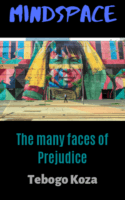Religion, culture, nationality are some of the ways we find and express ourselves, and derive meaning from. But often they are used as tools of prejudice and discrimination. We need honest dialogue at the table of day-to-day conversation about this.
Unattended to, or without critique, the likes of religion and nationality tend to morph into hate speech, under which we have witnessed heinous hate crimes carried. Religion and culture have given us tribalism, homophobia, slavery and misogyny, backed up by obscure verses, pseudo-science and outright ignorance.
Nationality has given us xenophobia and world wars, backed by a dash of a staggering inferiority complex and the need to displace blame for a country’s shortcomings.
Politics gave us- oh well – civil wars and every tool of societal disintegration you can think of from the shelves of your mental library.
And then there are subtle, yet powerful prejudices that make manifest psychologically, as stereotypes. They are social, economic and personal. From people being disgusted by the homeless, to people being disgusted by a certain body shape and size. Such stereotypes tend to lead to and perpetuate issues such as classism, body shaming, racial profiling, ageism, colorism and many more other complex prejudices that create a division.
Sometimes the premise of an ideology is objectively harmless. But it’s when things turn sour, when we are in difficult times, that we seek out a group different from us to place blame on. Historically this has led to bloodshed, subjugation and other acts of crimes against humanity.
The fact that at this day-and-age, racism is still as rampant, homophobia is as brazen as before, justifying rape is still just as viral, goes to show that we still have a long way to go as humanity. The more subtle prejudices are harder to talk about, because, mostly, people take them lightly, or worse- deny their existence.
No one ever talks about ageism, and we all know society tends to mistreat the elderly. Colourism- among blacks – light skin is swooned over in the flesh, while all over social media, the flock pretends to love the dark skin. No one talks of how society looks down on the homeless as if their subhuman. How people ask what you do for a living to measure your position in society, and thus measure the amount of respect you deserve.
Solutions to dismantle prejudices may all be linked to education – but to be honest, years of inculcation and misinformation takes time to combat and overcome. However, it is the only choice we have.
We need to educate people about other people’s perspectives, and the importance of tolerance of difference, and that there is no one ‘normal’. We need to talk about stereotypes our friends espouse fool-heartedly. We need to discuss sensitive topics honestly by encouraging open critique of ideologies, pseudoscience and forces that seek to monopolize the truth. And importantly, to teach kids love and tolerance – for the future of humanity is in their hands.
Tell us: do you challenge other people’s prejudice when you see it?
This blog also forms part of our Rights 2.0 – Bridging Divides project. Find out more here.



